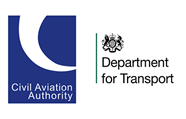
Osbourne House, 143-145 Stanwell Road,
Ashford,
Surrey,
TW15 3QN
All training courses are provided by
JP International Training, trading as Jim Pike Ltd
+44 (0) 7500 11 44 53
[email protected]
5 Imperial Court, Laporte Way,
Luton, LU4 8FE
Registration: 07049647

CAA registered training provider 078